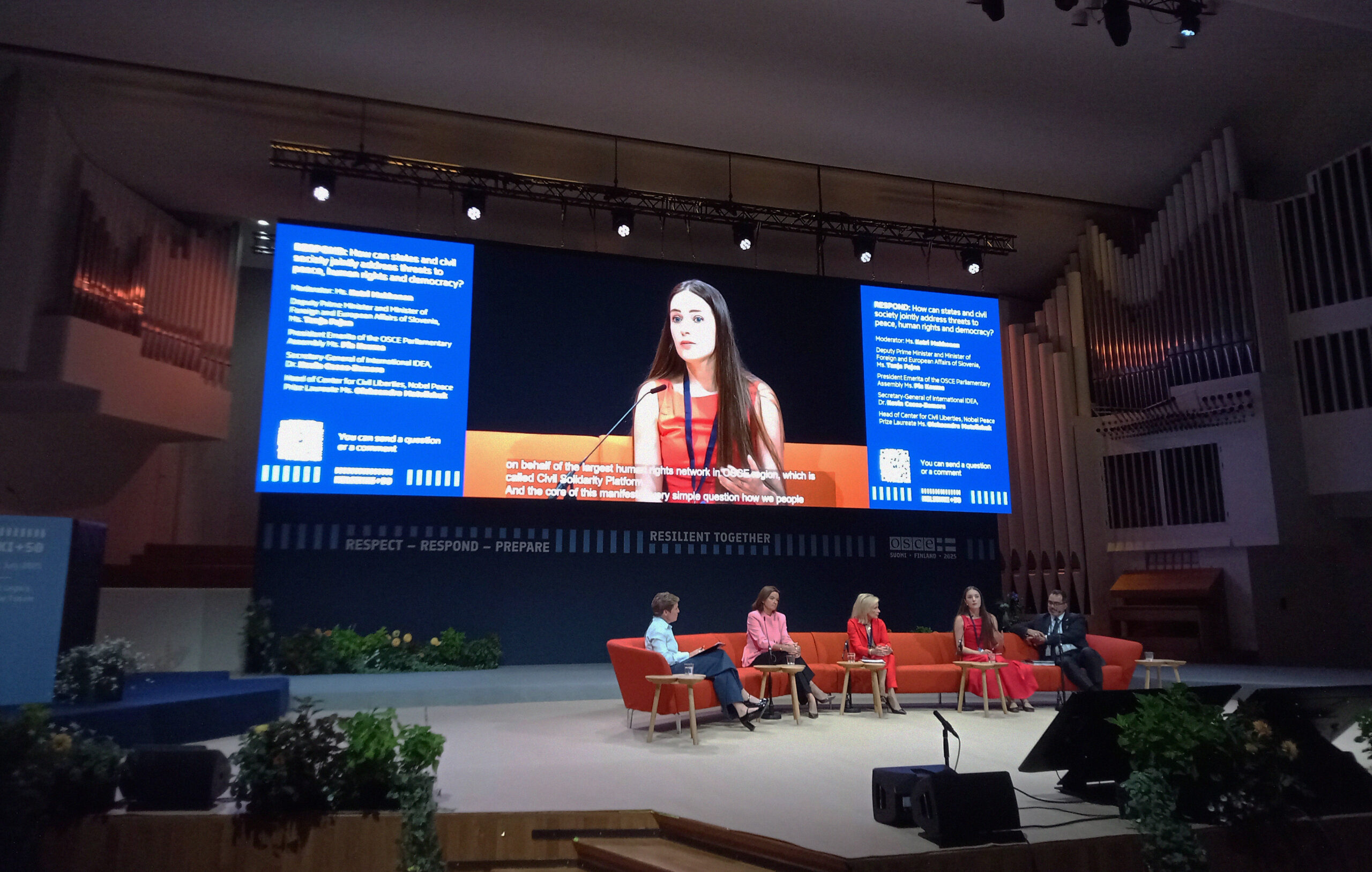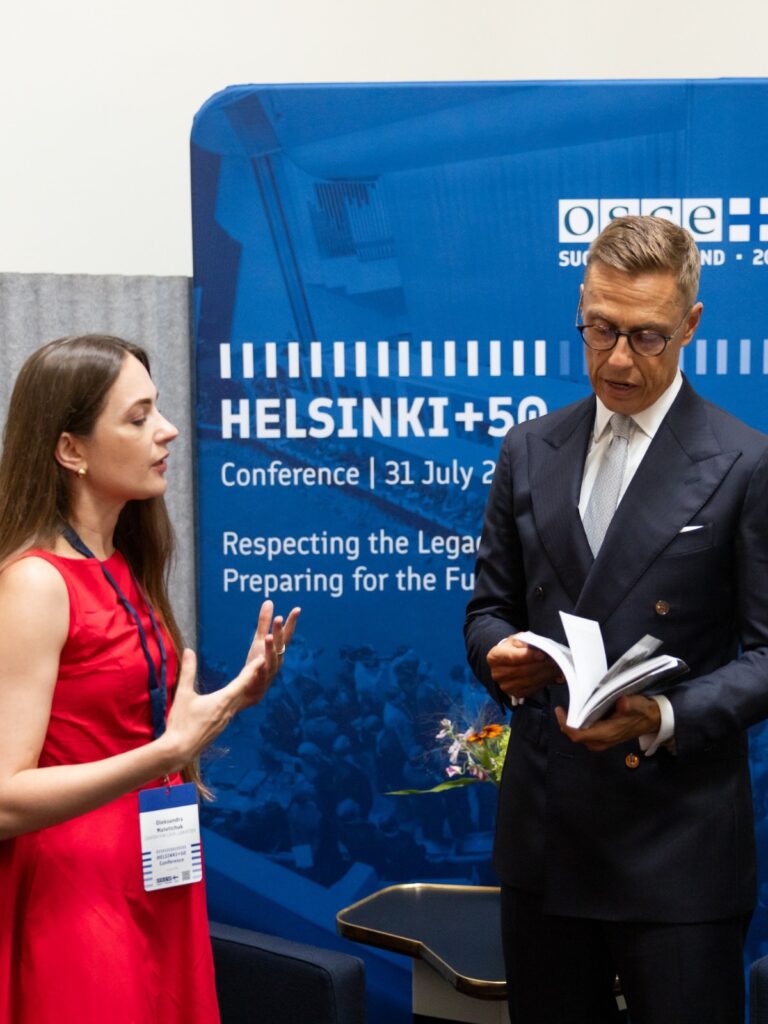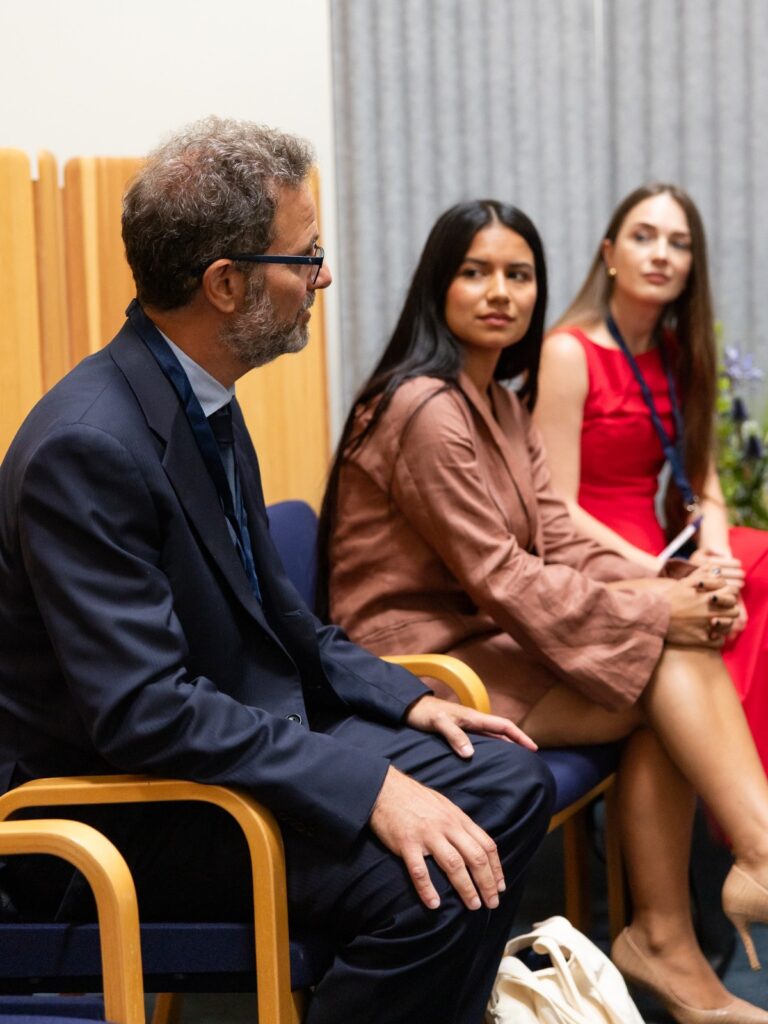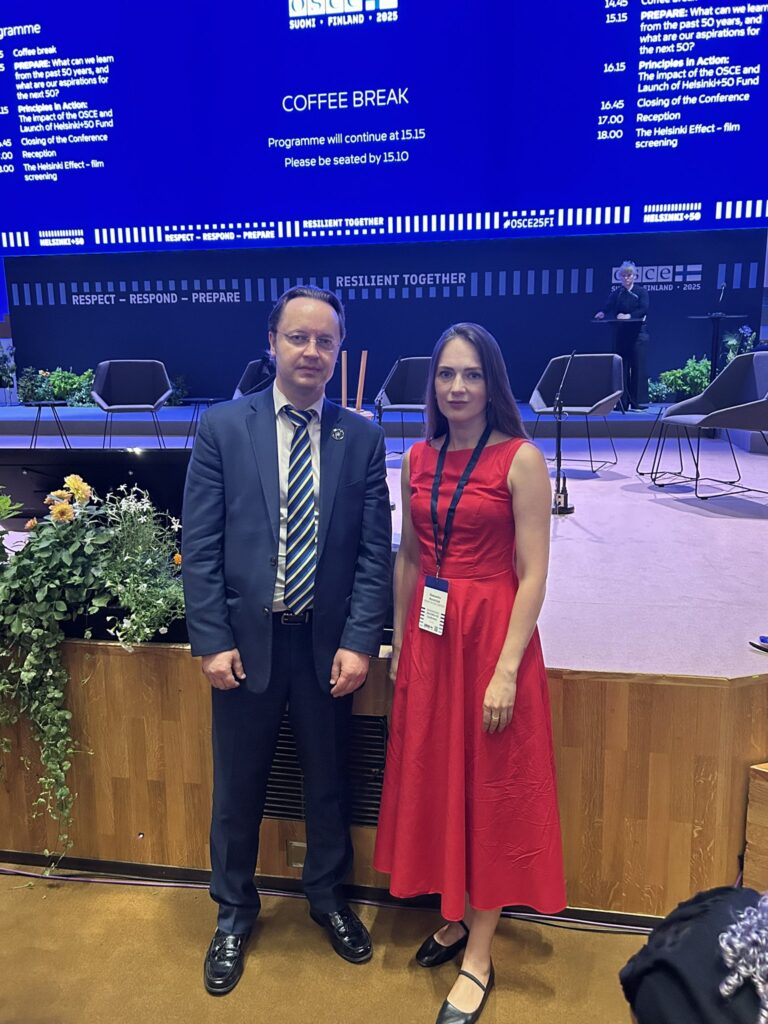“We are paying the highest price just for the chance to build a free and democratic country”. Oleksandra Matviichuk became a speaker at the main event of the “Helsinki+50” conference

On 31 July, Finland held a high-level conference, ‘Helsinki+50,’ to mark the 50th anniversary of the Helsinki Final Act. The event not only honoured the legacy of this important document but also served as a reminder that the principles of the OSCE should remain a guiding light in these challenging times. Special attention was paid to the role of civil society in supporting these principles and commitments. Oleksandra Matviichuk, head of the Centre for Civil Liberties, was a participant and speaker at the main event.
In 1975, despite the deep divisions in Europe, 35 states were able to agree on common principles by signing the Helsinki Final Act. It laid the foundations for European security — respect for sovereignty, territorial integrity, inviolability of borders, and human rights. This act not only initiated a belief in dialogue instead of conflict, but also inspired entire generations, including human rights movements in Eastern Europe. Its influence was felt in the events that eventually led to the fall of the Berlin Wall and the end of the Cold War.
Therefore, the conference on 31 July in the Finland Hall, where the act was signed 50 years ago, became an important part of Finland’s OSCE Chairmanship and a symbolic reminder of the need to remain faithful to principles that are currently facing unprecedented challenges. At the same time, the event looked to the future, discussing ways to strengthen security, human rights and the role of the OSCE in the modern world. The event also saw the official launch of the Helsinki+50 Fund, an initiative of the Finnish Chairmanship to strengthen voluntary financial support for the OSCE’s activities.
The Finnish Chairmanship invited OSCE participating States, its cooperation partners, executive structures, the OSCE Parliamentary Assembly, representatives of civil society and international organisations to participate. Among the distinguished speakers were: OSCE Chairperson, Finnish Minister for Foreign Affairs Elina Valtonen; President of the Republic of Finland Alexander Stubb; UN Secretary-General António Guterres; United Nations High Commissioner for Human Rights Volker Türk; Interim Executive Director of Human Rights Watch Federico Borello; Minister of Foreign Affairs of Ukraine Andrii Sibiha; Minister of State for Europe, North America and Overseas Territories of the United Kingdom Stephen Doughty; and many other influential participants. President of Ukraine Volodymyr Zelenskyy also joined online.
Oleksandra Matviichuk participated in a panel discussion entitled «How can states and civil society work together to counter threats to peace, human rights and democracy?»
«I don’t know what historians will call this period in the future, but we are living in very turbulent times. The world order based on the UN Charter and international law is collapsing before our eyes. The work of the Security Council is paralysed. It is now easy to predict that ‘fires’ such as wars may occur more and more often in different parts of the globe because the international wiring is faulty and there are sparks everywhere. The problem is not only that in authoritarian countries, the space for freedom is shrinking to the size of a prison cell. The problem is that even in developed democracies, people are beginning to question the Universal Declaration of Human Rights, and there are reasons for this.
The current generation inherited democracy from their grandparents. They never fought for it. They are beginning to take freedom and human rights for granted. They have become consumers of democracy and view freedom as the ability to choose between different cheeses in supermarkets.
But the problem is that freedom is very fragile. It cannot be achieved once and for all. We make our own choices every day, and we Ukrainians know this because for us, the struggle for freedom is not a one-time thing. We pay the highest price just for the chance to build a free and democratic country.
However, when we cannot rely on legal instruments and the international system of peace and security, we can still rely on people. We are used to thinking in terms of states and intergovernmental organisations, but ordinary people have much more power than they can even imagine.
Coming from a country that opposes Russian aggression, I know that war has not only a military dimension but also an information dimension. And modern authoritarian regimes attack the truth — this is one of the main challenges for modern democracies. Our world has changed rapidly. We spend more and more time in a digital reality that is overloaded with fakes, hatred, disinformation and propaganda. This leads to a situation where people begin to lose the ability to distinguish between truth and lies.
However, without a shared sense of reality, people cannot act together. And without joint action, we will lose our freedom and democracy. Therefore, we must overcome this challenge. We must return to the idea that facts, truth and freedom matter», Ms. Oleksandra shared during the discussion.
During the conference, Oleksandra Matviichuk also met with the President of Finland — the country hosting the event. The human rights defender presented Alexander Stubb with Aurélie Bross’s book Women and War: Letters from Ukraine to the Free World. The book contains the stories of 38 women who, in their letters, share how they live under the conditions of Russia’s war against Ukraine. During her visit to Finland, Oleksandra also met with representatives of the Finnish Government, Finland’s Minister for Foreign Affairs Elina Valtonen, and representatives of various OSCE bodies.




